![]()
The Words of the Ben-Zvi Family
|
|
The Words of the Ben-Zvi Family |
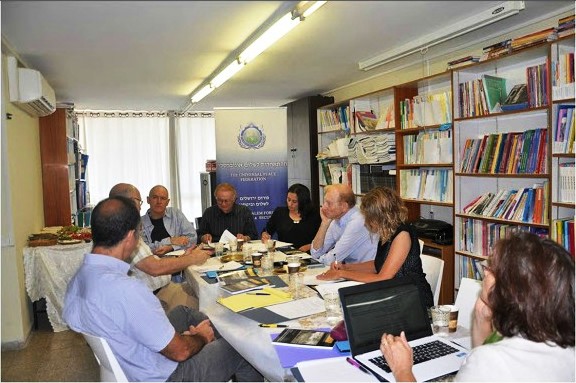
Jerusalem, Israel -- "Israel's Security Budget – Long-term Planning" was the topic of a Jerusalem Peace and Security Forum at the IMPACT-SE Institute on June 8, 2014.
The issue of the security and defense budget in the state of Israel is a rather challenging one. As a welfare democratic state, there are constant public demands for allocating financial resources to the fields of education, health and general welfare services. On the other hand, since Israel is surrounded by hostile countries and terrorist organizations that are calling for its destruction, there is a real need to protect the life of its inhabitants; thus, enormous funds are invested in the country's security, often at the expense of other pressing civilian needs.
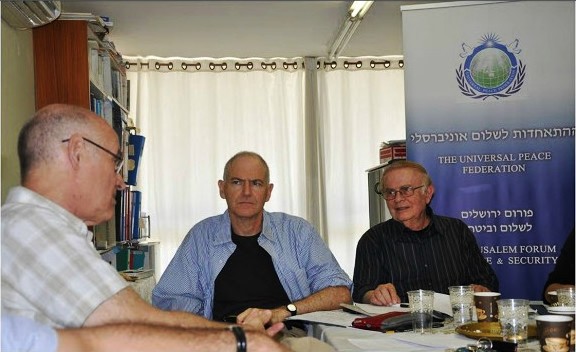
Prof. Eliezer Glaubach-Gal, the president of the forum, referred to those sensitivities in his opening remarks: "In Israel the defense expenditure is among the highest in the world. Recently there are strong voices in Israel calling for expanding the budgets for social needs and reducing the defense and security budget. And yet, this kind of move might have a negative effect on our national security, bearing in mind threats such as Iran's quest for nuclear weapons. Clearly, expanding the defense budget would imply a decrease in the quality of health services, slow down infrastructure needed for development, and negatively impact those from lower socioeconomic backgrounds. Even more pressing are the questions whether such a policy would be counterproductive to national resilience and whether a large defense budget necessarily guarantees the protection of Israel in any kind of future conflict.
Col. (Ret.) Dr. Erez Svardelov, head of the Strategic Consultancy Department at Matrix Information Technology Company, responded to the above questions and said that the main problem is that the Israeli security budget needs to implement a professional planning system and be changed to zero-based budgeting: "In the planning process, important essential questions need to be asked regarding the real-time severe security threats to Israel, which are rockets and missiles ready to be used by Israel's opponents targeting civilian population deep in the heart of the country." This leads to another question, Svardelov added: "Does Israel really need the amount of tanks it possesses? Or is there still a need to have missile boats for border security when there is no threat of invasion from the sea?" These protective methods belong to the past, he stated. Today Israel has different defense measures that it didn't have during the 1973 War, for instance. The question of "how the various budget items will contribute to national resilience should be asked in regards to any clause in a proposed budget," said Svardelov.
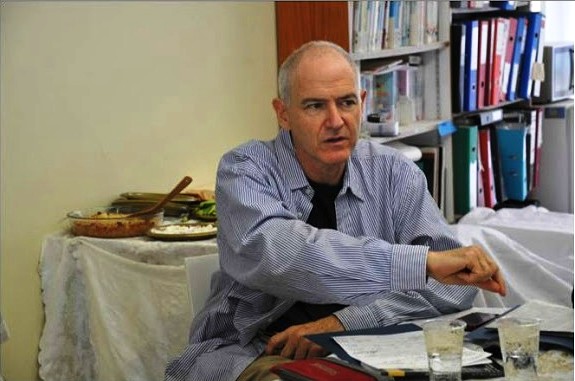
He also recommended establishing a governmental committee (not ad hoc group) of experts in relevant fields for ongoing analysis, evaluation and planning of the security budget. As Svardelov sees it, there is an awareness of the necessity for a thorough planning process accompanied by the need for political daring in decision making.
Dr. Efrat Elron, a senior fellow at the International Peace Institute, is currently researching the innovation and research processes in the Israeli Defense Forces (IDF) operational units, and in the process Elron studied many aspects of its budget. Elron's main insights for the efficient and proper use of public money are to reinforce the existing organizational consultation system in the IDF, connect it to the budget streamlining processes, and add to it expert budget officials who would tactically analyze the budget requirements in every army division. Elron also sees the need for regulation to describe the budget's clauses. Based on such descriptions, a discussion about efficiency in the IDF and its units can take place, concluded Elron.
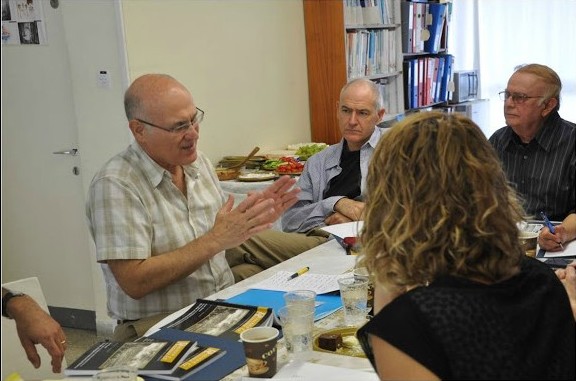
Dr. Eldad Pardo, head of research at the IMPACT-SE Institute, introduced the aspect of education to the security budget discussion. Dr. Pardo said that when it comes to security and budget, many observers tend to ignore the dimension of education and communication, but listening to and talking with people can dramatically help reduce security threats. In the media, the impact is immediate. Hence, Al-Jazeera TV was instrumental in unleashing the revolutions in Tunisia, Egypt, Libya and Yemen. Regarding education, the impact is more long-term. It is known, for example, that the "hate curriculum" developed in Iraq under the British rule around 1920 had long-term effects that continued through the 1991 Gulf War and beyond.
"The Institute for Monitoring Peace and Tolerance in School Education (IMPACT-SE), where we are meeting today, focuses on the study of school textbooks mainly in this region. We believe that an investment in education is more effective for security than investments in the military," Pardo explained, and concluded: "We must educate ourselves to listen, talk and learn from each other. Moreover, insisting on education for cooperation and peace in the school curriculum should be part of our security roadmap and budget."
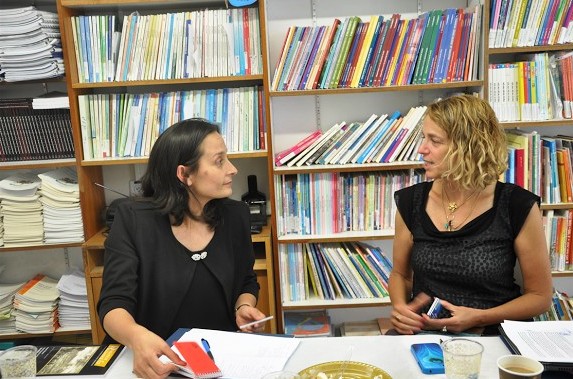
In the discussion which followed the expert panel, some comments were made by the participants: Mr. Ran Segev, an expert on issues of national security, said that Israel has not updated its basic national security concept since the 1950s and that the absence of such a review has obvious implications. Segev also mentioned that in reality, civil society and the security apparatus exist and function as two separate systems, and there is an imminent need for a clear, centralized national security overview that can analyze their respective needs in a unified way.
Mr. Dani Sherman, international relations analyst, agreed with the need for zero-based budgeting but added that in his understanding it needs to be done in all the governmental ministries, not only in the Ministry of Defense.
Hon. Ambassador Zvi Mazel, research fellow in the Jerusalem Center for Public Affairs, emphasized the need for a strong and stable Israeli state and said that due to the Iranian nuclear threat, Israel must maintain the strength of the Israeli Defense Forces and its readiness for war while at the same time emphasizing raising the moral standard of its soldiers.
In closing, Prof. Glaubach noted that there is a clear need for furthering the affinity between the Israeli security establishment and civil society as well as integrating Israel's security needs with the larger concept of working towards world peace.